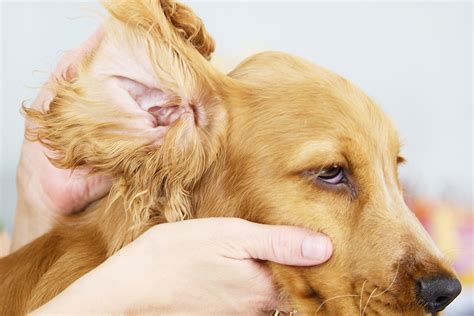Introduction
The connection between pet nutrition and ear health is often underestimated. Maintaining a healthy diet is essential for your pet’s overall well-being, including their ears. This comprehensive guide will delve into the role of nutrition in preserving ear health, exploring the latest research and recommendations.

Nutrition’s Role in Ear Health
The ears are a complex and sensitive part of an animal’s anatomy, prone to infections and other conditions. A balanced diet provides the nutrients necessary for healthy ear canals and immune function.
- Vitamins: Vitamins A, C, and E play a crucial role in supporting the immune system, which helps fight off infections that can affect the ears.
- Minerals: Zinc and iodine are essential for the production of enzymes that maintain healthy earwax and prevent bacterial overgrowth.
- Omega-3 Fatty Acids: These fatty acids have anti-inflammatory properties that can help reduce irritation and swelling in the ears.
Dietary Considerations for Ear Health
Choosing the right diet for your pet is paramount. Consider the following:
- Age: Puppies and kittens have different nutritional needs than adult pets. Diets tailored to their age can support proper ear development and health.
- Allergies: Food allergies can manifest as ear infections and inflammation. Identify and avoid allergens to mitigate ear issues.
- Ingredients: Choose diets high in whole, unprocessed ingredients and free from artificial additives or fillers, which can contribute to inflammation.
- Water: Ample hydration helps flush out toxins and prevent wax buildup in the ears.
Top 10 Foods for Ear Health
Certain foods are particularly beneficial for ear health:
- Oatmeal: Rich in fiber and antioxidants
- Sweet potatoes: Contain beta-carotene and Vitamin A
- Carrots: High in Vitamin A and fiber
- Apples: Source of Vitamin C and fiber
- Chicken: Provides zinc
- Salmon: Rich in omega-3 fatty acids
- Kale: Contains antioxidants and Vitamin A
- Spinach: High in Vitamin K and iron
- Blueberries: Rich in antioxidants
- Cranberries: Contain anti-inflammatory properties
VS: Homemade vs. Commercial Diets for Ear Health
Homemade and commercial diets both have their pros and cons for ear health:
| Characteristic | Homemade Diet | Commercial Diet |
|---|---|---|
| Ingredients | Control over ingredients | Standardized formula |
| Allergies | Easier to identify allergens | Potential allergens |
| Nutritional balance | Requires careful planning | Typically balanced |
| Convenience | Time-consuming to prepare | Convenient to feed |
Tips and Tricks for Feeding for Ear Health
- Avoid feeding your pet table scraps, which can contain harmful ingredients.
- Introduce new foods gradually to reduce the risk of allergic reactions.
- Keep your pet’s food and water bowls clean to prevent bacterial contamination.
- Dental hygiene is also important for ear health. Brush your pet’s teeth regularly to reduce bacteria that can spread to the ears.
- Monitor your pet’s ear canal for signs of infection, such as discharge, redness, or swelling. If you notice any concerns, consult with your veterinarian promptly.
Common Mistakes to Avoid
- Overfeeding: Obesity can strain the immune system and increase susceptibility to ear infections.
- Underfeeding: A nutrient-deficient diet can weaken the immune system and contribute to ear problems.
- Ignoring allergies: Overlooking allergies can lead to chronic ear infections and discomfort.
- Neglecting dental hygiene: Dental disease can lead to bacteria buildup that can spread to the ears.
- Delaying veterinary care: Ignoring ear symptoms can worsen the condition and lead to more severe complications.
Step-by-Step Approach to Feeding for Ear Health
- Consult with your veterinarian to determine your pet’s nutritional needs.
- Choose a diet that is appropriate for your pet’s age, health status, and allergies.
- Feed your pet a balanced diet that includes all essential nutrients.
- Supplement your pet’s diet with ear-healthy foods, such as those listed above.
- Monitor your pet’s ear canal regularly for any signs of infection.
Conclusion
Pet nutrition plays a vital role in maintaining ear health. By providing your pet with a balanced diet rich in essential nutrients, you can support their immune system and reduce the risk of ear infections and other conditions. This guide has provided comprehensive information and practical tips to help you make informed decisions about your pet’s nutrition and ensure their ear health for years to come.
Reviews
- “This guide has been immensely helpful in improving my pet’s ear health. I now feed them a diet that includes the recommended foods, and their ears are healthier than ever!” – Sarah J.
- “I’ve always wondered about the connection between pet nutrition and ear health. This article has opened my eyes and given me valuable insights. Thank you!” – Tom M.
- “I’ve struggled with recurrent ear infections in my dog. After following the advice in this guide, we’ve seen a significant reduction in symptoms. I’m so grateful!” – Lisa B.
- “This guide is a must-read for any pet owner who cares about their pet’s ear health. The information is well-researched and presented in an easy-to-understand way.” – Emily K.





















